
American International Pictures is an American motion picture production label of Metro-Goldwyn-Mayer, owned by Amazon MGM Studios. In its original operating period, AIP was an independent film production and distribution company known for producing and releasing films from 1955 until 1980, a year after its acquisition by Filmways in 1979.
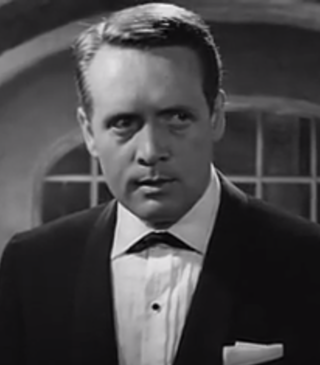
Patrick Joseph McGoohan was an American-born Irish actor, director, screenwriter, and producer of film, television, and theatre. Born in New York City to Irish parents, he was raised in Ireland and England, and began his career in England during the 1950s and became well known for his role as secret agent John Drake in the ITC espionage programme Danger Man (1960–1968). He then produced and created The Prisoner (1967–1968), a surrealistic television series in which he featured as Number Six, an unnamed British intelligence agent who is abducted and imprisoned in a mysterious coastal village.
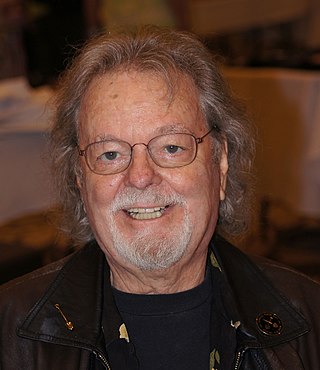
Russell Irving Tamblyn, also known as Rusty Tamblyn, is an American film and television actor and dancer.

Emmett Evan "Van" Heflin Jr. was an American theatre, radio, and film actor. He played mostly character parts over the course of his film career, but during the 1940s had a string of roles as a leading man. Heflin won the Academy Award for Best Supporting Actor for his performance in Johnny Eager (1942). He also had memorable roles in Westerns such as Shane (1953), 3:10 to Yuma (1957), and Gunman's Walk (1958).
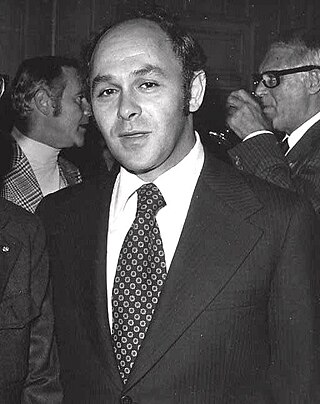
Frank Yablans was an American studio executive, film producer, and screenwriter. Yablans served as an executive at Paramount Pictures, including President of the studio, in the 1960s and 1970s.

Too Late the Hero is a 1970 American war film directed by Robert Aldrich and starring Michael Caine, Cliff Robertson, Ian Bannen and Harry Andrews.

Richard Quine was an American director, actor, and singer.

Barton Lee Hazlewood was an American country and pop singer, songwriter, and record producer, most widely known for his work with guitarist Duane Eddy during the late 1950s and singer Nancy Sinatra in the 1960s and 1970s. His collaborations with Sinatra as well as his solo output in the late 1960s and early 1970s have been praised as an essential contribution to a sound often described as "cowboy psychedelia" or "saccharine underground". Rolling Stone ranked Lee Hazlewood & Nancy Sinatra No. 9 on its list of the 20 Greatest Duos of All Time.
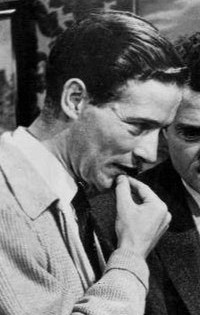
Michael Joseph Anderson was an English film and television director. His career spanned nearly 50 years across three countries, working at various times in the United Kingdom, the United States, and Canada. His most critically and commercially successful works include the World War II film The Dam Busters (1955), the dystopian sci-fi film Logan's Run (1976), and the comedy adventure epic Around the World in 80 Days (1956), which won the 1957 Academy Award for Best Picture.
Martin Nelson Ransohoff was an American film and television producer, and member of the Ransohoff family.

Filmways, Inc. was a television and film production company founded by American film executive Martin Ransohoff and Edwin Kasper in 1952. It is probably best remembered as the production company of CBS’ “rural comedies” of the 1960s, including Mister Ed, The Beverly Hillbillies, Petticoat Junction, and Green Acres, as well as the comedy-drama The Trials of O'Brien, the western Dundee and the Culhane, the adventure show Bearcats!, the police drama Cagney & Lacey, and The Addams Family. Notable films the company produced include The Sandpiper, The Cincinnati Kid, The Fearless Vampire Killers, Ice Station Zebra, Summer Lovers, The Burning, King, Brian De Palma's Dressed to Kill and Blow Out, and Death Wish II.
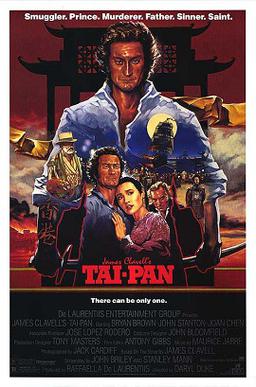
Tai-Pan is a 1986 adventure drama film directed by Daryl Duke, loosely based on James Clavell's 1966 novel of the same name. While many of the same characters and plot twists are maintained, a few smaller occurrences are left out. Filmed under communist Chinese censorship, some portions of Clavell's story were considered too offensive to be filmed as written and considerable changes were made.

Delmer Lawrence Daves was an American screenwriter, film director and film producer. He worked in many genres, including film noir and warfare, but he is best known for his Western movies, especially Broken Arrow (1950), The Last Wagon (1956), 3:10 to Yuma (1957) and The Hanging Tree (1959). He was forced to work on studio-based films only after heart trouble in 1959 but one of these, A Summer Place, was nevertheless a huge commercial success.

The Strawberry Statement is a 1970 American drama film set in the counterculture and student revolts of the 1960s. The story is loosely based on the non-fiction book of the same name by James Simon Kunen about the Columbia University protests of 1968.
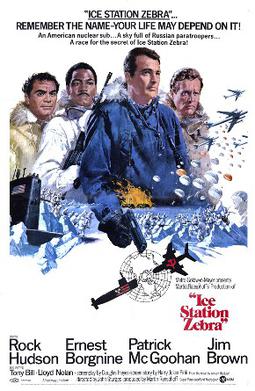
Ice Station Zebra is a 1968 American espionage thriller film directed by John Sturges and starring Rock Hudson, Patrick McGoohan, Ernest Borgnine, and Jim Brown. The screenplay is by Douglas Heyes, Harry Julian Fink, and W. R. Burnett, loosely based on Alistair MacLean's 1963 novel. Both have parallels to real-life events that took place in 1959. The film concerns a US nuclear submarine that must rush to the North Pole to rescue the members of the Ice Station Zebra.

The Chairman is a 1969 spy film starring Gregory Peck. It was directed by J. Lee Thompson. The screenplay was by Ben Maddow based on a novel by Jay Richard Kennedy.
The 15th Annual Screen Actors Guild Awards, honoring the best achievements in film and television performances for the year 2008, were presented on January 25, 2009. The ceremony was held at the Shrine Exposition Center in Los Angeles, California for the thirteenth consecutive year. It was broadcast live simultaneously by TNT and TBS.
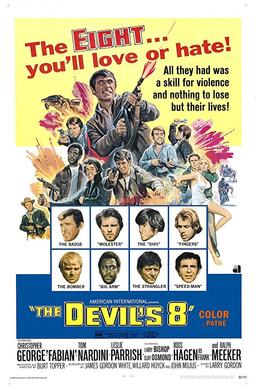
The Devil's 8 is a 1969 film directed by Burt Topper and starring Christopher George, Fabian, Tom Nardini and Leslie Parrish. It was produced and distributed by American International Pictures.
Louis F. "Bo" Polk Jr. was an American businessman who was briefly president of MGM.

The Subterraneans is a 1960 American drama film directed by Ranald MacDougall based on the 1958 novel of the same name by Jack Kerouac.
















